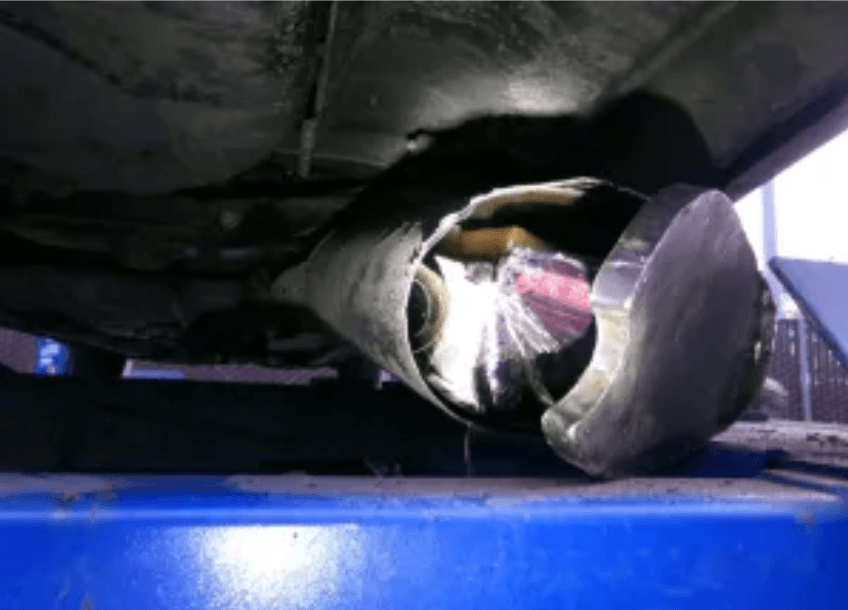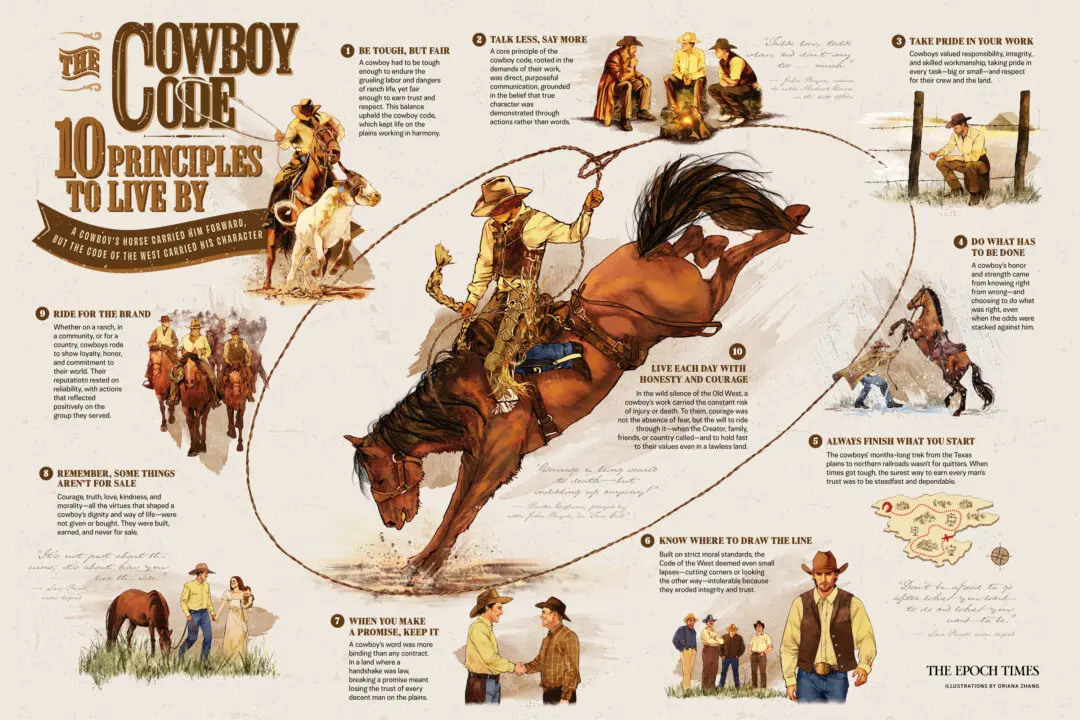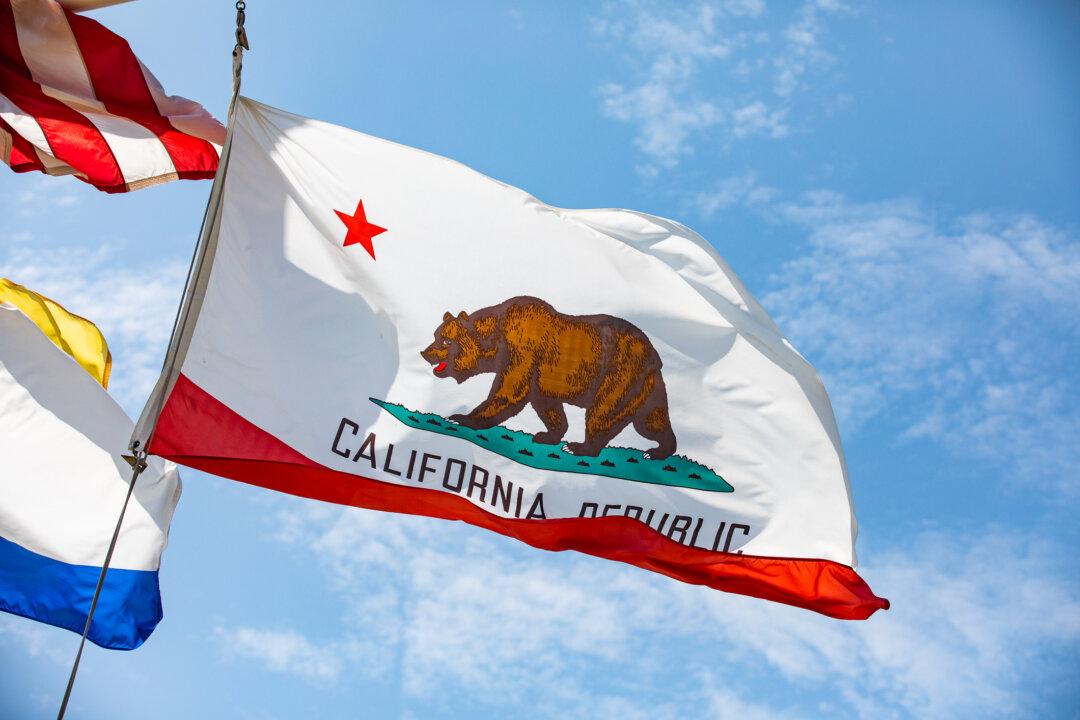Nearly 17 pounds of fentanyl powder, heroin, and cocaine were found hidden in the muffler of a vehicle at the Mexico border in San Diego, authorities said July 16.
Officers from U.S. Customs and Border Protection (CBP) encountered a 28-year-old man driving a 2003 sedan at the Otay Mesa Port of Entry at 4:30 a.m. on July 11, as he sought to cross into the United States.





